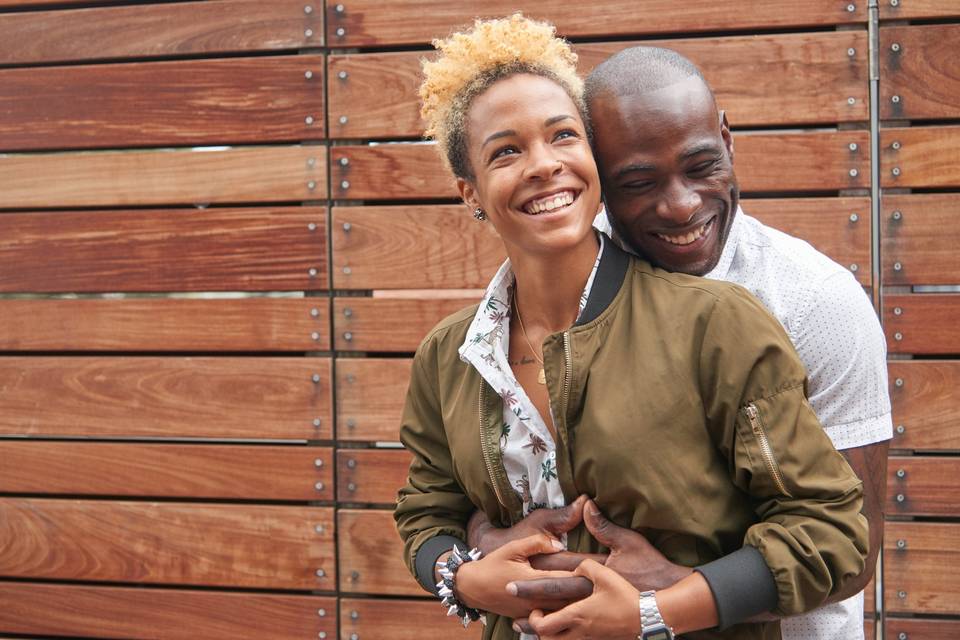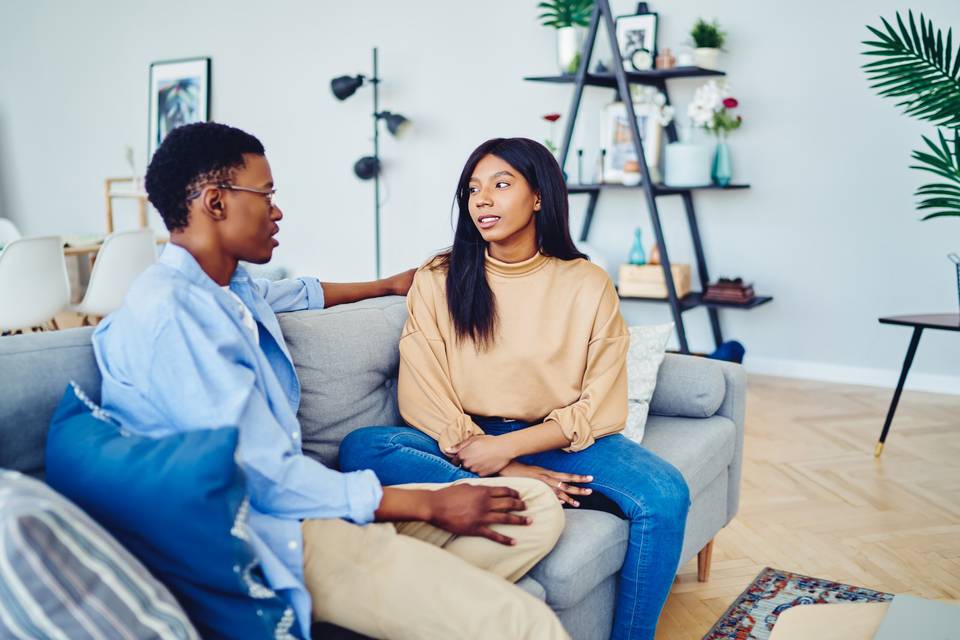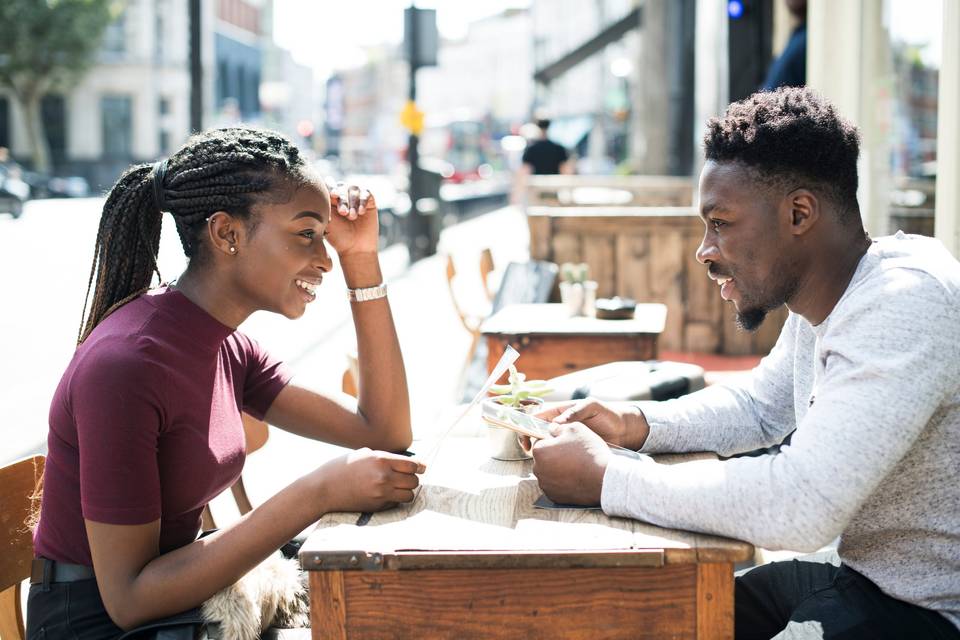Are You Ready for an Exclusive Relationship? 3 Experts Share How to Know
An exclusive relationship is a big (and exciting) step! Here's how to know if you're ready.


When you decide to jump from the relationship stage where your dating profile is still making the rounds, you never say no to a drinks date, and ghosting doesn't seem out of the question, to one where you're pursuing an actual relationship with someone you want to spend an increased amount of time with, that's the right opportunity to explore what an exclusive relationship means and whether you're ready.
An exclusive relationship is a big step. You delete your profile from the dating sites and commit to exploring a long term relationship with this new(ish) person. But, what does an exclusive relationship even mean? And how do you know when you're ready and how to navigate one? We're here to help you make the leap.
What's the meaning of an exclusive relationship?
The TL;DR is: You and your partner exclusively date each other. That means no swiping and no swapping numbers with potential flings. It also means finding a richer connection with your partner as you two explore a serious relationship and intertwine your lives more deeply.
Relationship coach Lee Wilson explains, "An exclusive relationship means your top priority is your commitment to your partner above all others. You and your partner have privileged rights with each other and intimacy—both physically and emotionally—that is reserved only for that person.
Are you ready? Here's when it's time to talk about an exclusive relationship.
Determining whether you're ready for an exclusive relationship can be a roller coaster of a process. You're considering whether you feel ready to say goodbye to first dates, whether this relationship is a long-term fit—and whether you see, "I love you" in your future, and you're thinking about whether your partner is on the same page.
So, how do you know it's time to make that jump from the early stages of dating to becoming exclusive? We asked the experts for their best dating advice to help us figure it out.
When the Idea of Going On a Date With Someone Else Is Unappealing
If you've stopped swiping right and you're no longer wondering if each trip to the grocery store could mean meeting your next crush in the produce aisle, then perhaps it's time to explore an exclusive relationship. Michelle Mouhtis, a relationship coach and licensed therapist, says, "If you don’t have a desire to see or date other people, and you would be jealous or upset if your partner was doing the same, then it would be a good time to have the conversation."
When Your Plans for the Present and Future Include Your Partner
If you're in a casual fling, you're only concerned about whether you're going to see your crush that week. But, when it transitions to something more serious—and exclusive—often you start making plans months or even years ahead. That's when you know it's time to explore exclusivity.
When the Monogamy Talk Is Just a Formality
Sometimes labels are just labels, and you and your partner have been in a monogamous relationship without ever discussing whether you're exclusive. Wilson notes, "Oftentimes great relationships exist even before labels or statements of commitment occur. When each of you chooses that you don't have interest in exploring a potential relationship with anyone else and want to focus exclusively on one person, that should be discussed with your partner."
How the Experts Navigate the Transition from Dating to Exclusive
Knowing that you're ready for an exclusive relationship can be easier said than done, but these dating experts have tips for how to navigate the transition –– and the talk –– smoothly.
Talk about it.
Mouhtis advises saying goodbye to timelines and, instead, bringing up the conversation around your relationship status when it feels right for you. She says, "Navigating the transition from dating to exclusive relationship starts with having an honest conversation. It’s better to talk about it than assume one way or another, so no one’s feelings get hurt. It may feel scary, but it’s also good practice to be vulnerable with your partner."
She goes on to add, "Anyone who is turned off by having a conversation around defining the relationship is not a partner you want to be with in a serious relationship. In fact, someone who is also looking for a serious relationship will be turned on that you brought the subject up. Being clear is being kind to both yourself and the other person."
Revisit expectations when you commit to an exclusive relationship.
Therapist and writer Sara Kuburic recommends revisiting your relationship expectations when you go from casual dating to a committed relationship. Communication is always critical, but it helps to explicitly set these boundaries any time there is a big transition. She says, "Reestablish goals and expectations in the relationship and adjust boundaries when and if needed."
Put a label on it...if you want.
Some people love the official status that comes with a label—and some cringe at the very idea. An exclusive relationship doesn't rely on either! Wilson says, "If labels like boyfriend or girlfriend are what puts a stake in the ground and designates the start of an understanding and commitment, embracing those terms can be terrific as long as both of you place the same meaning on them."
What should you expect in an exclusive relationship?
If this is your first foray into the world of exclusive dating, you may wonder what partnership is like after you say goodbye to the dating apps. There could be anxiousness around loss of independence or whether you'll know how to act in a serious relationship. Don't worry, however, this is a natural extension of the rich relationship you and your partner built while dating—just with a different level of commitment. You'll still relish spending time together, supporting each other, and getting to know all of the little things you haven't discovered about your partner.
Wilson says, 'Each partner should expect a commitment from the other to protect the relationship. That means that the two of you plan the future together, you embrace sharing daily experiences together, and that both partners consider each other in every decision they make. The two of you rely on each other and are considered together by the rest of the world."









